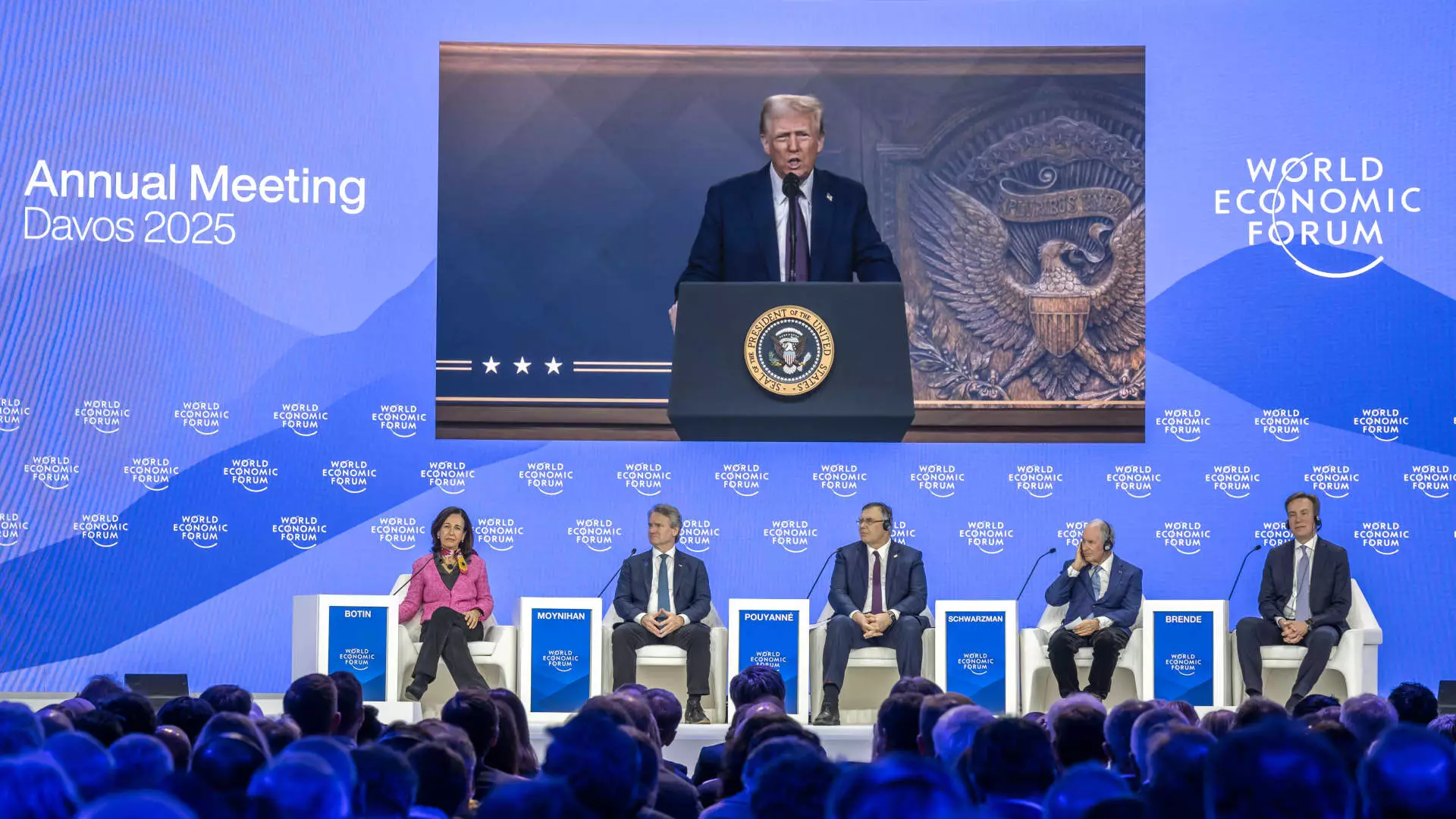The banking sector in the United States finds itself at the intersection of politics and finance, a place where reputations can be made or broken by the utterance of a few powerful words. Recently, Donald Trump, the former president and potential 2024 candidate, reignited a controversy surrounding the banking industry’s purported discrimination against conservatives. Speaking at the World Economic Forum in Davos, Switzerland, he singled out two prominent banking figures: Bank of America CEO Brian Moynihan and JPMorgan Chase CEO Jamie Dimon. This clash of narratives begs an examination of not only what was said but also the implications behind these claims.
During a video address, Trump went so far as to accuse the CEOs of denying services to conservatives, urging them to “open your bank to conservatives.” This assertion, part of a broader talking point in his upcoming campaign, was met with immediate rebuffs from the banks involved. Both Bank of America and JPMorgan Chase issued statements emphatically denying any policies that would target clients based on their political beliefs. A Bank of America representative highlighted the bank’s commitment to serving a diverse clientele, boasting over 70 million customers and outright rejecting the notion that political views play a role in client service.
The pushback from these financial heavyweights raises questions regarding the balance between corporate responsibility and political engagement. Can a business truly remain apolitical in an environment rife with partisan sentiment? The stakes are high; negative portrayals can lead to reputational damage that translates directly into financial losses.
Trump’s allegations come against a backdrop of heightened scrutiny over banking practices post-2008 financial crisis, which prompted regulators to impose stricter standards on lenders. In an effort to mitigate risks, many banks revised their policies to close accounts they deemed high-risk, impacting industries such as payday lending, gambling, and even certain religious organizations. Such practices have sparked legal and ethical debates surrounding client rights and the freedom of financial services.
The controversy intensified with claims from Kansas Attorney General Kris Kobach, who alleged instances where Bank of America closed accounts belonging to religious groups with mainstream values. The bank has consistently defended its choices, clarifying that account closures resulted from compliance with regulatory frameworks rather than any political or religious considerations. This defense is crucial as it highlights the balancing act banks must perform: adhering to laws while also maintaining a broad client base.
The implications of Trump’s rhetoric extend beyond the immediate claims against banking giants. They echo within a larger framework of ongoing political discourse surrounding discrimination and freedom of expression. Influential figures in Trump’s circle have chimed in, suggesting that many conservative entrepreneurs face de-banking, framing it not as a financial decision but as a political one. This intertwining of finance and politics challenges the very nature of capitalism, where market forces are traditionally expected to reign supreme without political interference.
Critics of this narrative argue that such claims can easily devolve into victimhood rhetoric, distracting from the more complex realities surrounding banking and accountability. The political landscape and financial systems are inherently connected; however, attributing motives to banking decisions—especially those aligned with regulations—requires careful consideration and fact-based discourse.
As the 2024 election season approaches, the interplay between politics and large financial institutions will likely gain even more traction. Investors and shareholders keep a close eye on how banks navigate the political waters, especially with the increasing number of clients eager to see their values reflected in their financial dealings. The longstanding alliance between the banking industry and interests tied to traditional conservatism signals a cautious optimism for many within Trump’s camp that regulatory measures may shift toward favoring their ideologies.
The recent uptick in valuations for Bank of America and JPMorgan Chase post-Trump’s remarks underscores that, within the broader market context, political statements can yield mixed results. While the immediate fallout might lead to heightened scrutiny of these financial health indicators, long-term effects remain unpredictable.
The accusations leveled by Trump against leading banks open Pandora’s box, getting to the heart of the intertwining ideologies of politics and finance while igniting broader discussions about accountability, freedom of expression, and the environment surrounding banking practices. As both sides of the debate prepare for what lies ahead, one thing remains certain—the conversation around banking, politics, and their respective intersection is far from over.

